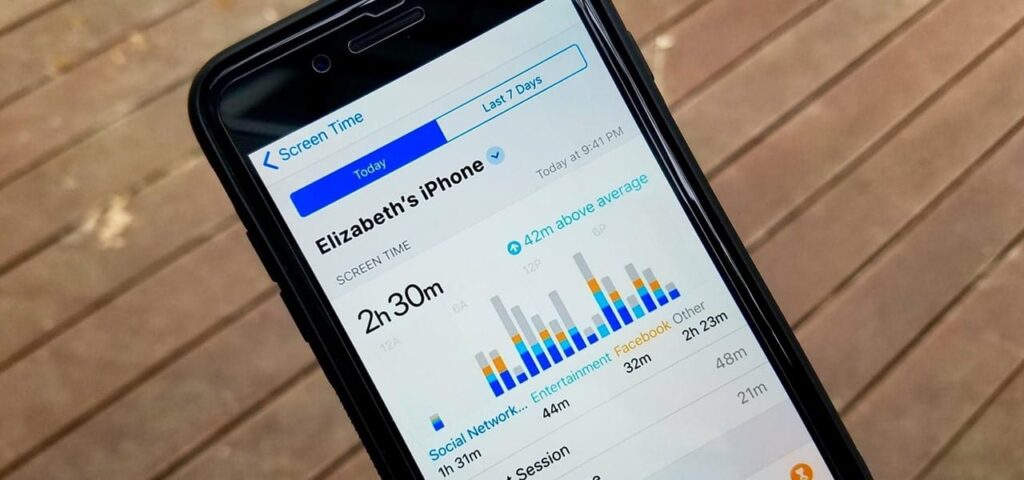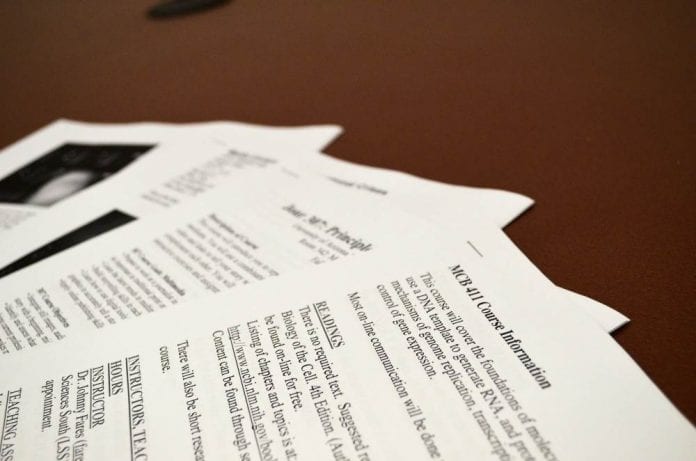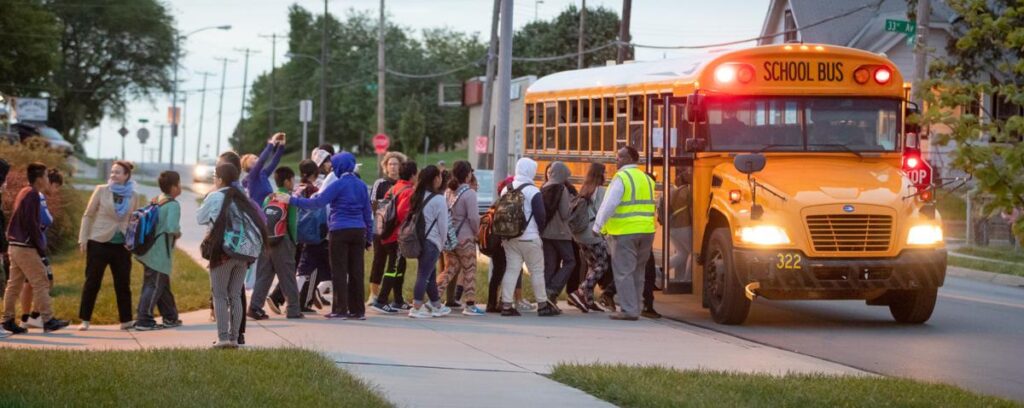Tag: Emily Ball ’22
An Opportunity for Inclusion: Embracing non-Catholic Religious Holidays
by The Cowl Editor on December 6, 2018
Opinion

by Emily Ball ’22
Opinion Staff
Hanukkah, Kwanzaa, Boxing Day, Chinese New Year—all of these holidays are part of various religions and cultures and there are millions who celebrate them. As a Dominican institution, Providence College celebrates Christmas. Various Christmas-themed events take place and Christmas trees decorate most buildings. However, PC should celebrate and respect the holidays of other religions as well.
Some may argue that PC’s label as a Catholic college infers that the school should solely promote Catholic holidays. However, PC is a diverse campus with students coming from different countries, different backgrounds, and different religions.
In fact, PC was the first college in Rhode Island to welcome students of every faith, and students with no faith. The College also has a long, close connection with the Jewish community. In fact, some of the College’s most devoted teachers and alumni are Jewish.
Because of the large number of students who practice religions and come from cultures other than Catholicism, PC must be inclusive towards their traditions.
The PC website stresses the College’s emphasis on embracing the diversity of the students from different cultures and religions: “As a Catholic and Dominican institution, diversity is a key component of our collective pursuit of truth, promoting rigorous exploration of diverse ideas and theories, critical engagement with the world, cross-cultural understanding, innovation in problem-solving, and collaboration across differences within and beyond the classroom.”
In order to embrace the diversity on campus, PC must include celebrations and events for the non-Catholic holidays that many students do celebrate; have a night to play dreidel in McPhail’s for Hanukkah, or serve traditional African food in Raymond Dining Hall for Kwanzaa.
Students who do not celebrate Christmas may feel left out when they walk past the Christmas trees and events posted promoting only Christmas celebrations. Including other holidays will unify the campus on the basis of our differences.
Further, diversifying the campus’ holiday celebrations will allow other students to experiencing the traditions of different cultures and religions. A big part of the college experience is trying new things and experience new ideas; having a diverse range of events for all of the holidays will allow students to do so.
“I think it would be really interesting to be able to experience Hanukkah celebrations or any other holiday other than Christmas,” Chris Matthews ’22 said. “I know not all of the students here are Catholic so I think having events for the other religions would be beneficial.”
PC should include events on campus that celebrate holidays other than Christmas. This change would not only promote inclusion, but also unify PC students.
Outside-of-Class Learning Prompts Outside-the-Box Thinking: Professors Should Promote Extracurricular Experiences
by The Cowl Editor on November 15, 2018
Opinion

by Emily Ball ’22
Opinion Staff
Bland, boring, baffling—in-class lectures and PowerPoints tend to receive these reactions from college students. Typical 50 minute-long lectures can be tedious and tiring when you have information thrown at you for so long.
To address this issue, the Development of Western Civilization (DWC) professors have implemented an aspect of the class called Outside-of-Class Experiences (OCEs).
As a part of their grade, students attend interesting lectures outside of class, watch performances, visit museums, or go to other events that pertain to the curriculum. Providence College offers a multitude of informative lectures about relevant topics as well as humanities forums for all students to attend.
“In our experience, students are frequently unaware of the large number of opportunities on campus for enrichment outside of class,” Dr. Vance Morgan said. “We consider attendance at such events to be an integral part of the college experience, so we wanted to help students form the habit of extending their education outside of the classroom early in their college careers.”
After attending the event, students write a one-page reflection paper explaining how the event or experience correlates to what they are learning in class, what they disagree with, and what important ideas or messages they took away from the experience.
OCEs are beneficial to the learning process as they open up opportunities for learning outside of the classroom that students often would not attend otherwise.
“I think OCEs are good for us as students because they force us to experience lectures and museums and other opportunities that we would not normally go to,” Grace Berning ’22 said.
Some students may argue that having the burden of completing OCEs is added stress because they have to attend these learning experiences in their free time; however, most lectures for OCEs only last about an hour, and all other opportunities depend on the time students dedicate towards them.
The flexibility of the OCEs is another positive aspect, as students are able to suggest any event or experience they want to use as an OCE and, with the approval from their professor, they have the opportunity to use it for their grade.
OCEs are beneficial because they are an easy and enjoyable way to increase students’ grades, as professors grade for completion and evidence that the students attended the event or lecture. “OCEs help because they are an easy boost to our grade,” Clinton Phinney ’22 said.
The College’s production of Bat Boy: The Musical counted as an OCE and allowed students to support their fellow classmates in the show while completing a portion of their grade.
“It meant so much to me to have so many people there to support me,” said Alex Cannon ’22, an actor in Bat Boy: The Musical. “It is so much fun to perform knowing there are people out there in the audience for you.”
OCEs are a beneficial addition to any curriculum because they encourage students to take advantage of opportunities outside of class that will benefit them inside the classroom as well.
Tangents and Tirades
by The Cowl Editor on November 1, 2018
Opinion

Breakfast for Dinner in Ray
From chocolate chip pancakes to cheesy scrambled eggs and crispy hash browns, Raymond Dining Hall’s breakfast is absolutely stellar. And there are plenty of Providence College students that would agree with this statement.
However, breakfast during weekdays ends at 10:30 a.m. which is inconvenient for students with late classes or for students who just want to sleep in for a few extra hours.
After a busy day of classes and homework, there is nothing better than breakfast for dinner; however, there is never breakfast offered past the early morning hours during the weekdays and past 2 p.m. on the weekends.
Ray should offer breakfast options throughout the day, because there is nothing more homey than having breakfast for dinner or even for lunch.
Some may argue that the dining hall offers cereal throughout the day which is enough of a breakfast fill; however, the cereal options are usually the same and are less satisfying than fresh pancakes or waffles.
The breakfast here at PC is the best meal that Ray offers, so even incorporating special nights where breakfast is served for dinner would be satisfactory. While it is great that they have nights like these during finals week, they should incorporate them more regularly throughout the semester, as well.
But even aside from dinner, many PC students could benefit from an extension of the hours that breakfast is served, which would make it more accessible for busy students.
After all, breakfast is the most important meal of the day.
-Emily Ball ’22
PC Pups: Unexpected Pet Therapy
As we just passed the semester’s midpoint, many of us may be missing the comforts of home.
Maybe it’s sleeping in your own bed or enjoying a home-cooked meal as opposed to Ray food, but for many there’s the longing for their dog. Dogs always seem to know how to cheer us up and make us smile.
Being away from home and your pet for so long creates a longing in your college life that, luckily, Providence College somehow manages to make better—by allowing dog walkers on campus!
Whether it be during a long walk from the Arthur F. and Patricia Ryan Center for Business Studies to the library, or just walking in between classes, one is always bound to see someone walking their dog.
Oftentimes, students spot the same dog throughout the week; however, there never appears to be a shortage of new dogs gracing the walkways of PC.
Events such as the one on Oct. 27 during New Student Family Weekend where students were able to play with puppies offered a good stress-relieving break after a busy couple weeks of midterms.
There are no complaints from any of the friends I’ve been with while encountering dogs on campus. In fact, those few minutes of pure joy while petting a cute dog serve as a tiny bit of pet therapy. And in the end, the encounter leaves all parties better off.
-Katherine Belbusti ’22
“Screen Time” Astounds Apple Users: New iOS Update Compels Limiting Technology Use
by The Cowl Editor on October 25, 2018
Opinion

by Emily Ball ’22
Opinion Staff
Apple recently introduced their newest iOS 12 update with many new features including one very important innovation: Screen Time.
According to Apple’s Support Page, Screen Time allows users to “see the time spent in apps, usage across categories of apps, how many notifications are received, and how often devices are picked up.”
Screen Time has rudely awakened Apple users to how frequently they truly are using their phones. People who assume they only spend a total of two to four hours a day on Snapchat or Instagram may find out they actually spend closer to ten hours on social media sites.
Morgan Weiner ’21 said, “The first time I checked the daily screen time I was alarmed by the fact I spent nearly seven hours a day on my phone.”
This realization decreases the likelihood that users will invest that much time in those certain apps going forward, which is beneficial to today’s society, as most people overuse their phones and rely on technology as their main form of communication.
“Since then, I make it my goal to spend fewer minutes on my phone each day. I successfully killed all my Snapchat streaks and spend way less time scrolling through Instagram,” said Weiner.
The shock due to the data from Screen Time should encourage users to spend less time on trivial apps such as Snapchat and Instagram and spend more time focusing on fostering authentic relationships with a foundation of face-to-face communication.
Due to this effect, Screen Time is a valuable addition to Apple’s technology.
Furthermore, Screen Time allows users to set a limit on the amount of time they spend on certain apps. With this asset, users can set a time limit on apps that they find themselves mindlessly perusing, so that they can put all of their attention on the task at hand.
Screen Time’s limits on the usage of certain apps is a beneficial feature, assisting users in avoiding the seeming inescapable desire of getting sucked into the world of social media.
The time limits also allow parents to limit their children’s usage of particular apps, which is helpful for parents of current teenagers who have grown up with the temptations of social media.
Teenagers today are accustomed to a life consumed by social media and technology. This norm seems to encourage teenagers that the constant use of social media is what everybody does.
The limit on usage will show teenagers that there is more to the world than social media and technological means of communication. Thus, grades may increase and current teenagers will have an improved ability to communicate in real life situations, rather than solely virtually.
The introduction of Screen Time in the iOS 12 update is controversial; many people find it invasive and unnecessary. However, the ideal effect of this update is a decrease in the aimless time spent on social media and a greater focus on communication and other aspects of real life.
One Syllabus at a Time
by The Cowl Editor on October 18, 2018
Opinion

by Emily Ball ’22
Opinion Staff
Syllabus week: the first week of classes, the week where college professors throw their semester-long, jam-packed class syllabi at you, the bane of any college student’s existence.
A typical college syllabus contains a day-by-day outline for the entire semester. It usually includes information about what each class will consist of and what homework is due on that specific day. Professors expect students to check the syllabus daily in order to see what homework is due for the next class.
“Having a syllabus stresses me out because I feel like if I do not check it multiple times a day, I am going to miss an assignment,” said Allie Eurell ’22.
Although it is often helpful to have a road map of each class, syllabi create unnecessary stresses when it comes to due dates and assessments in the foreseeable future.
“Having such a detailed syllabus makes a course more like a series of assignments that you just have to get through, rather than promoting a desire to actually learn and engage with the material,” said Kate Donohue ’22.
A majority of college students get nervous and anxious when they hear the word “exam.” The issue with syllabi is that they identify the date of each exam that students will take, creating unnecessary apprehension about future exams even weeks in advance.
“I benefit from knowing in advance what I will be doing, but sometimes I become nervous looking at the long lists of things to complete in multiple classes,” Matt Lussier ’22 said. “It definitely makes me a little anxious knowing the huge amount of assignments left in the semester.”
Some students may argue that having the dates of exams far in advance is beneficial because they can prepare for exams ahead of time; Aidan Schifano ’22 is one of those students, “I like the syllabus, it lets me plan out my week and my month. It makes me more prepared for my classes.”
However, focusing on preparing for exams and assignments in advance would take away from one’s focus on assignments due sooner. Further, preparation for exams does not need more than one to two weeks, so students really do not need notice regarding exams until then.
Everybody needs time to relax and rewind after a stressful day but having the looming apprehension of future assignments can prevent students from fully relaxing. Instead of putting on a Netflix show and sitting back to relax, a college student may choose to get ahead on future assignments because they have the syllabus telling them what is due in the future.
“It’s difficult to relax when there are still so many assignments and examinations in the future, and the time it takes to plan out one’s schedule detracts from the already stressful and busy life that a college student leaves,” said Alex Cannon ’22.
One alternative that college professors could implement is a weekly, online syllabus. This way, each week’s assignments are available and students can get ahead on assignments that are due later that week, without stressing about assignments and exams due in upcoming weeks or months.
With a weekly syllabus, students do not have to worry about upcoming exams that month or even later that semester.
College professors could announce exam dates two weeks in advance to allow proper preparation without the nerves encircling the exam burdening students far in advance.
Having a weekly syllabus posted online would also save paper, as most college professors print enough copies of their syllabi for classes with up to 100 students in a Development of Western Civilization lecture.
Although the usage of a syllabus is functional right now, implementing an online, weekly syllabus will eliminate a level of stress for college students and allow them to relax more instead of worrying about what is to come.
PC Needs Clear Emergency Evacuation Plan
by The Cowl Editor on September 27, 2018
Opinion

by Emily Ball ’22
Opinion Staff
Colleges and universities have been forced to evacuate quickly and efficiently in order to protect the safety of their students, due to the hurricanes down south, as well as the gas leaks in northeastern Massachusetts.
In the south, schools such as the University of South Carolina and Coastal Carolina University were evacuated due to the threat of Hurricane Florence. However, these disasters do not only occur in southern states.
Locally, the gas leaks and explosions in parts of Massachusetts led to the evacuation of schools, such as Merrimack College.
“When I had to evacuate school it was definitely scary,” said Merrimack student Sarah Tierney. “I wish I would have been more prepared in case something like this was to happen beforehand, but I think the school did a good job updating us on the whole situation.”
With concerns of natural disasters and other possible issues, all schools must actively incorporate emergency evacuation training along with the traditional protocols, like fire drills.
Before practicing evacuation drills, campus safety must prep students with a list of items to pack when leaving campus, how they will be transported away from campus, where to meet, and how to communicate with loved ones.
“As a senior at Providence College, I have personally never encountered a situation where I needed to leave campus immediately,” said MaryKate Griffin ‘19. “However, I feel like if I did need to evacuate I would have no idea of what to do or where to go. I think that is the thing that the campus could improve on, just promoting what to do in case these emergencies arise.”
Practicing evacuation drills would prevent panic and stress by allowing students to become aware of where to go and what to bring if schools order an evacuation.
Along with conducting physical drills, schools must provide more information in preparation for in-the-moment emergencies in popular spots on campus.
Putting posters in student centers and flyers on bathroom stall doors will allow students to easily access information needed to understand safety procedures.
Not only should schools prepare for safety procedures, they must also acknowledge the threat of active shooters and bombs.
Several colleges across the nation, including Virginia Polytechnic Institute and State University, have reported an active shooter on campus. Students must know where to go in case a similar situation arises.
In addition, bomb threats have occured at many schools and students are unsure of how to react to this type of situation. Colleges must acknowledge certain areas as “bomb shelter” buildings where students can seek protection.
With the omnipresent possibility of emergencies arising, schools must take proper precautions to prepare students in case an evacuation is necessary.
A Freshman’s Perspective: How to Improve New Student Orientation
by The Cowl Editor on September 20, 2018
Campus

by Emily Ball ’22
Opinion Staff
Ice-breakers. Just the sound of that word sends a chill down any college freshman’s back; this holds true at Providence College as well.
As New Student Orientation wrapped up over Labor Day Weekend, the consensus among the freshman class was pure relief; many freshmen were relieved that orientation was over.
However, this is not the type of feedback orientation should elicit. The program must change for next year’s orientation.
New Student Orientation spans the course of two weekends: the weekend of freshman move-in day and Labor Day weekend.
The program begins the minute freshmen students say their good-byes to their parents, one of its flaws, as the students who are already overwhelmed with emotions must transform their nerves into social efforts in order to interact with the students in their orientation groups.
Orientation should be held earlier in the summer, like it is at other colleges. This way, incoming students are able to experience a few nights feeling like true college students and have an idea of what to expect before coming in.
This change will ease the nerves of new students by showing them familiar faces and allowing them to seek out important buildings, such as the academic buildings, dorm buildings, and recreational facilities, where their classes take place, before they even start.
A lot of the mandatory sessions during orientation were not even related to the college transition, but focused rather more on warning students of possible threatening scenarios.
“I thought orientation was very repetitive on alcohol abuse and sexual assault,” said Cam Scales ’22. “Which I understand, but they could cut the online courses or some of the other sessions.”
Students were also unhappy with the surplus amount of somber topics paired with the lack of fun experiences and activities.
“I expected orientation to have events like pep rallies and competitions and games,” Malena Aylwin ’22 said. “Although they did offer a few fun things, they were all late at night and I felt like I was too tired by the end of the day to go to them; they should have been offered during the day.”
Another unrealistic aspect of orientation was the non-stop structure, as normal college students have the freedom to make their own schedule.
The incoming students felt confined to their small group and the tightly-packed schedule that they were unable to make an effort towards other students with similar interests, especially because the orientation groups were completely random.
“I felt that being limited to one orientation group and also being forced to sit with them during meals limited me from branching out to other students,” said Lauryn Anthony ’22.
Even some orientation leaders themselves noticed a lack of enthusiasm among the freshman class, furthering the need to reform the program for the future.
When the Class of 2023 enters next year, the program must implement these changes in order to gain greater appreciation for orientation, as well as a more positive attitude.
